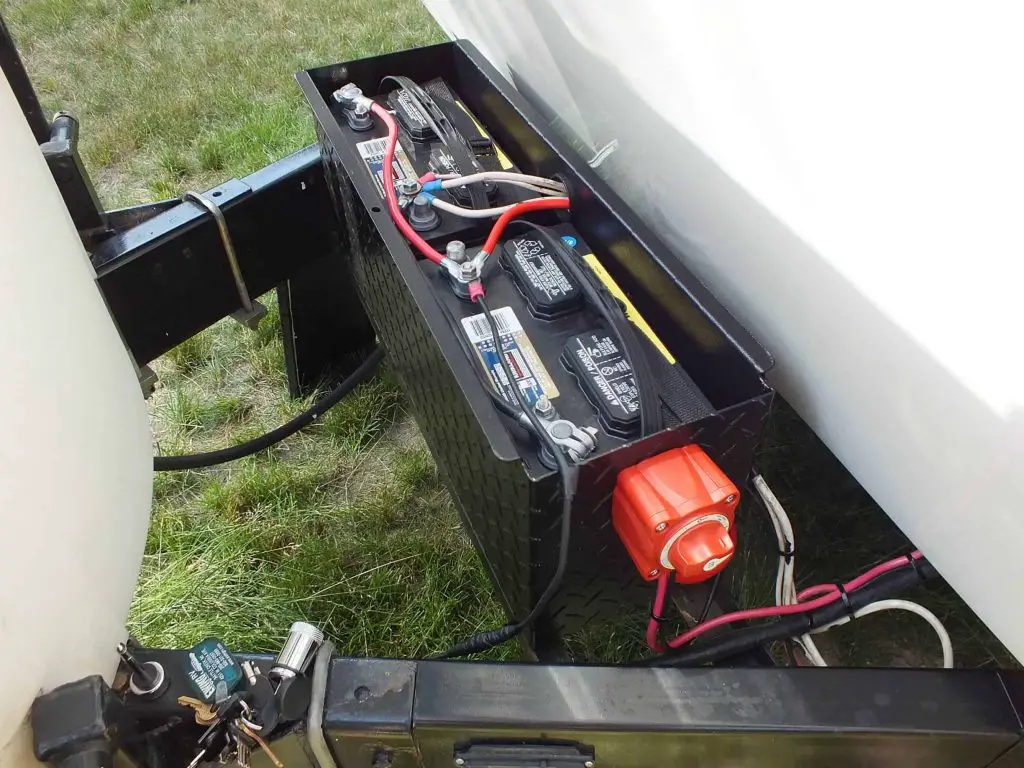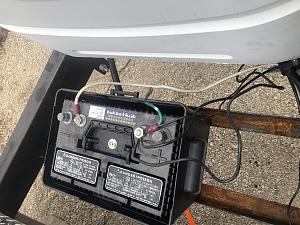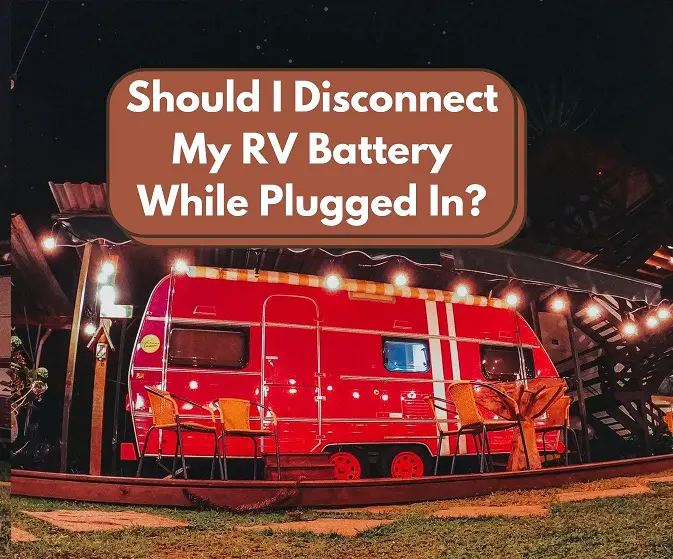There seems to be a lot of confusion about shore power, RV converters, and RV battery disconnects, and how each of them works best. We get lots of readers asking us: should I disconnect my RV battery when plugged in?
You should not disconnect your RV battery when plugged in. In fact, the only time you should disconnect your RV battery is during long term storage.
There are several reasons you should keep your RV battery connected when plugged in to shore power, which we’ll cover in this guide.
Should I Disconnect My RV Battery When Plugged In?
Since your RV converter will work without a battery, it may seem logical to disconnect the RV battery when plugged into an external power source .
You should not disconnect your RV battery when you’re on shore power, as there are several issues that it can cause with your RV’s batteries, RV power converter, and electronics.
In fact, the only time you should use your RV battery disconnect is when putting your RV or camper into long-term storage so that your batteries will discharge more slowly than usual.
What Is An RV Battery Disconnect Used For?

An RV battery disconnect breaks the connection between your RV’s battery (such as the Roadhawk Predator RV battery) and the 12-volt fuses that supply power to your RV’s appliances, lights, and other electrical devices.
When the RV battery disconnect is thrown, all power to and from the RV batteries are cut off.
This disconnect is intended to be used when the RV is in storage, as disconnecting the batteries from the electrical sources will help slow down the rate at which they lose charge.
The RV battery disconnect is also a good way to ensure safety to prevent electric shocks while doing repairs and maintenance to anything electrical-related on your RV (assuming you’re not plugged into shore power).
Why Should I Keep My RV Battery Connected When Plugged In?
When plugged into shore power, your RV converter takes the 120-volt AC power source of a “plug in” and converts it to the 12-volt DC power used by your RV’s lights, appliances, and other electrical equipment.
In addition to modifying the electrical current, your RV converter also takes the responsibility of charging your RV’s batteries.
Learn more here about what RV converters do.
Disconnecting your RV’s batteries while plugged in will not allow your batteries to charge.
Furthermore, if the disconnect is thrown, your batteries cannot act as a backup power source in the event there is an outage of shore power, literally leaving you in the dark!
Beyond that, some RV converters simply won’t work without an RV battery connected (this is not common, but possible).
Lastly, most RV converters are not intended to do all the “heavy lifting” of power requirements while on shore power for big jobs like engaging self-leveling systems, powering slide-out motors, and more, and operating these without an RV battery connected can expose your RV converter to damage and shorten its lifespan.
Will Leaving My RV Battery Connected While Plugged In Hurt My Batteries?

When you run your RV from shore power over long periods of time, the RV converter may deplete the electrolyte levels in your batteries which could lead to battery damage.
Some RVs have battery tenders built in to their systems, which prevents this.
If your RV doesn’t have a battery tender, you’ll want to check your RV batteries’ water levels at least one time each month and top them off with distilled water as needed.
Different Types Of RV Converters
There are two types of RV power converters, and each behaves a little differently:
- Converter Chargers power the 12-volt DC system at the 12-volt fuse/breaker center and backfeed through the disconnect to the battery for charging.
Converter chargers will not charge the RV battery if the disconnect is thrown, and converter chargers are the most common type found in most RVs.
- Inverter Chargers charge through the large inverter cables which are commonly hooked directly to the RV batteries, which bypass the disconnect switch.
Inverter chargers will continue to charge the RV batteries even when the disconnect is thrown, and are not as common as converter chargers.
Should I Disconnect My RV Battery When Plugged In To Shore Power? Wrapping Things Up
We covered that you should not disconnect your RV battery when plugged in to AC power in this guide, as you will not be charging your RV batteries and can also expose your RV power converter to additional damage or stress.
The only time you should disconnect your RV battery is during long periods of storage, which will help slow the drain of those batteries.

